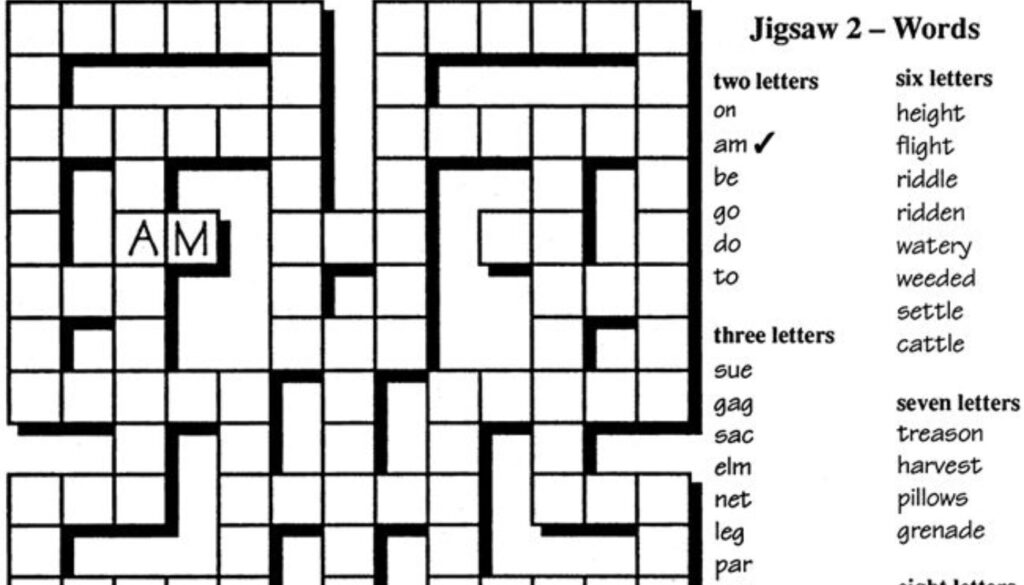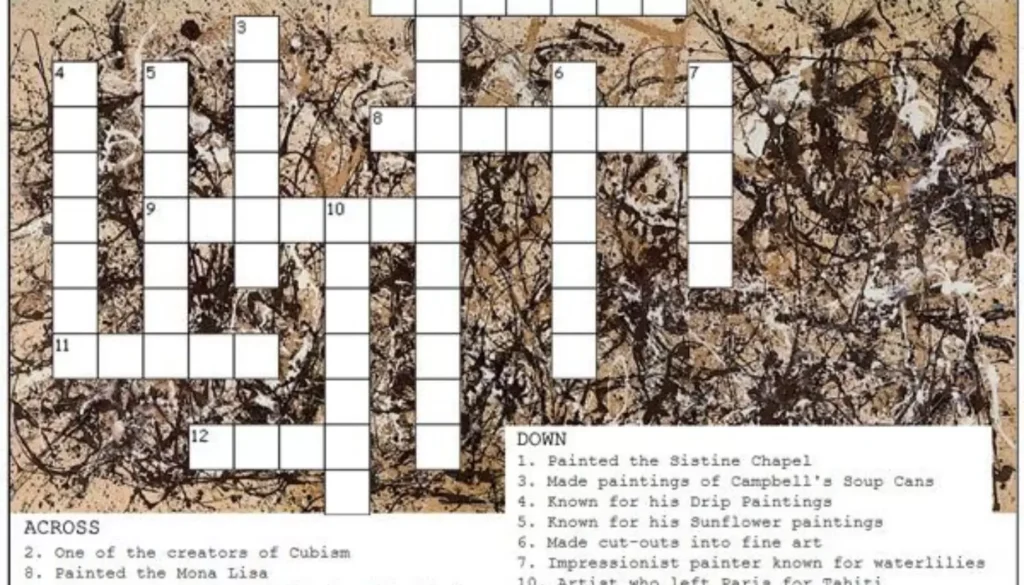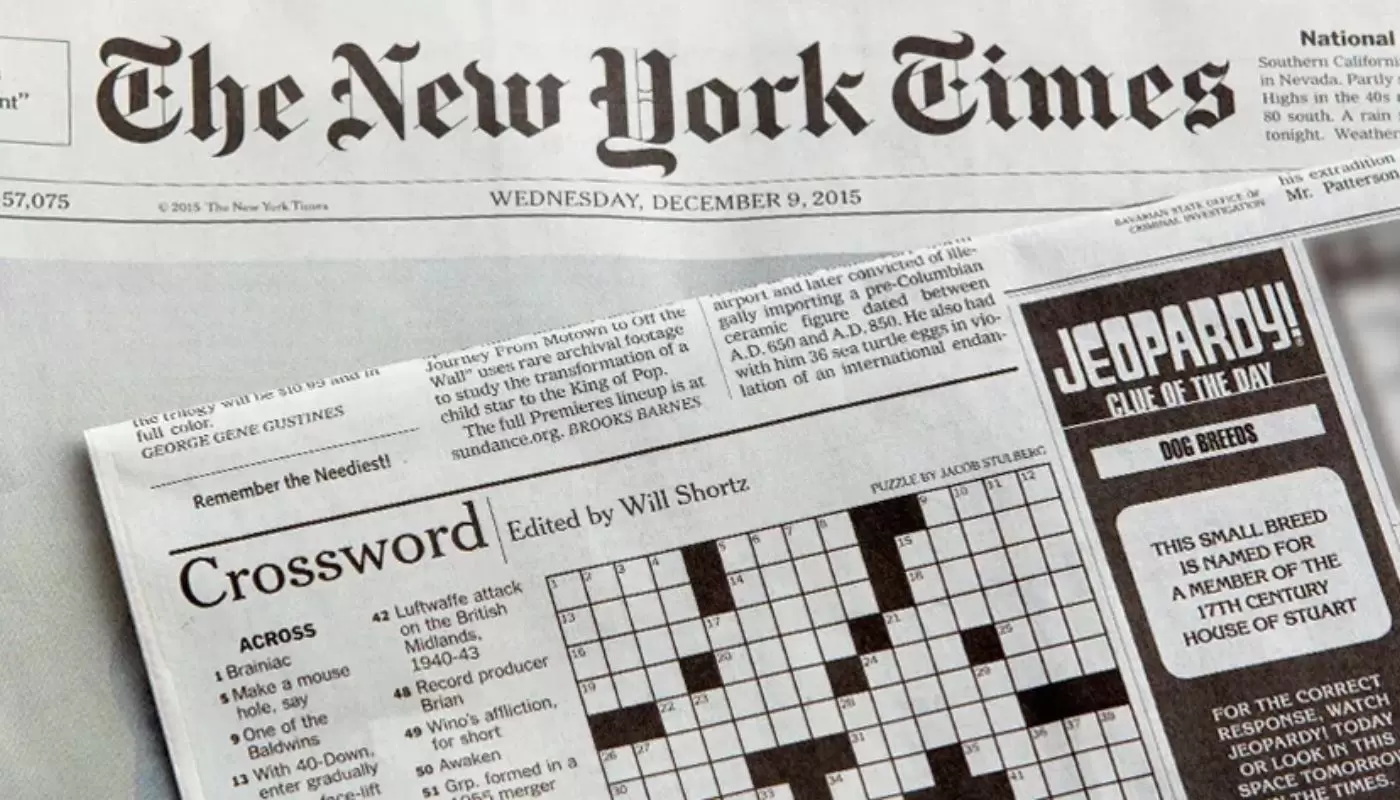Ever scratched your head over a short denial in a New York Times crossword? You’re not alone! These tiny word puzzles pack a big punch. Let’s dive into the world of short denials and unravel their secrets together.
Understanding the Clue
Short denials in crosswords are like little verbal speed bumps. They’re quick, they’re snappy, and they often leave you thinking, “Wait, what?” But don’t worry – with a bit of practice, you’ll be zipping over them in no time.
Common Answers
When you spot a short denial clue, a few go-to answers might pop into your head:
- NAY
- NAH
- NO WAY
- NUH-UH
- NOT I
These little nuggets of negativity are crossword gold. They’re short, they’re sweet, and they fit neatly into those pesky three-letter spaces.
Tips for Solving
Cracking these clues isn’t rocket science, but it does take a bit of finesse. Here’s how to tackle them:
- Look for context clues in the surrounding puzzle.
- Consider the length of the answer space.
- Think about common crossword lingo.
- Don’t overthink it – sometimes the simplest answer is right.
Common Words Used in Short Denial NYT Clues
Crossword constructors love to get creative with their clues. You might see words like:
- Refusal
- Rejection
- Negation
- Dissent
- Veto
Keep an eye out for these red flags of denial. They’re usually signaling you to think in the negative.
Examples of Short Denial Clues in Crosswords

Let’s look at some real-world examples:
- “Emphatic turndown” (3 letters)
- “It’s not gonna happen!” (5 letters)
- “Thumbs-down vote” (3 letters)
- “Disagreement in Dogpatch” (6 letters)
Can you guess the answers? (Psst… they’re NAY, NOWAY, NAY, and NUHUH)
Benefits of Practicing with Short Denial NYT Clues
You might be thinking, “Why bother with these tiny troublemakers?” Well, let me tell you – there’s more to gain than just filling in blanks.
Enhances Vocabulary
Diving into short denials exposes you to a world of witty wordplay. You’ll pick up new ways to say “no” faster than you can say “nope”!
Improves Problem-Solving Skills
Each clue is a mini-puzzle. Solving them sharpens your mental toolkit, making you a better problem-solver in all areas of life.
Boosts Crossword Solving Speed
The more you practice, the quicker you’ll get. Soon, you’ll be blazing through crosswords like a pro.
Strengthens Language Skills
Playing with words and their meanings helps you understand language on a deeper level. It’s like a workout for your brain’s language center.
Encourages Strategic Thinking
Crosswords aren’t just about knowing words – they’re about strategy. Short denials teach you to think critically and make educated guesses.
Provides Enjoyment and Satisfaction
Let’s face it – there’s nothing quite like the “aha!” moment when you crack a tricky clue. It’s a little burst of joy in your day.
The Art of Crossword Construction

Ever wonder how these puzzles come to be? Constructors are like wordsmiths, carefully crafting each clue and answer. They’re the unsung heroes of the crossword world, really.
The Evolution of Short Denials in Crosswords
Short denials have been around since the dawn of crosswords, but they’ve evolved over time. What was once a simple “no” has blossomed into a garden of creative negations.
Cultural Variations in Short Denials
Did you know that short denials can vary across cultures? While “nah” might be common in English, other languages have their own unique ways of saying “no” in a jiffy.
The Psychology of Denial in Crosswords
There’s something oddly satisfying about filling in a denial. It’s like you’re rebelling against the puzzle itself. Take that, crossword!
Short Denials in the Digital Age
With online crosswords gaining popularity, short denials have found new life. They’re perfect for quick, on-the-go solving sessions.
The Role of Short Denials in Crossword Themes
Sometimes, a puzzle’s theme revolves around negations. It’s like a celebration of “no” – who knew denial could be so fun?
Short Denials Across Different Puzzle Difficulties
As puzzles get harder, so do the denial clues. What starts as a simple “nay” on Monday might evolve into a brain-bending wordplay by Saturday.
The Crossword Constructor’s Perspective
For constructors, short denials are like secret weapons. They’re versatile, they fit almost anywhere, and they can save a tricky corner of the grid.
Short Denials in Crosswordese
Crosswordese – the language of crosswords – is full of short denials. They’re like the punctuation marks in the grand sentence of puzzle-solving.
Regional Variations in Short Denials
Depending on where you are, you might encounter different short denials. A “nae” in Scotland is just as valid as a “nah” in New York.
The Future of Short Denial Clues
As language evolves, so do crosswords. Who knows what new short denials we’ll see in the puzzles of tomorrow?
Mastering Short Denials: A Soldier’s Journey
Every solver has their own journey with short denials. It’s a rite of passage in the crossword world – from frustration to fascination.
Short Denials in Crossword Tournaments
In the high-stakes world of crossword tournaments, recognizing short denials quickly can make or break your solving time.
The Zen of Short Denials
There’s a certain peace in accepting the “no” of a crossword. It’s like a little lesson in life – sometimes, the answer is simply “nah.”
Embracing the Challenge
Short denials might seem tricky at first, but they’re part of what makes crosswords so addictive. Embrace the challenge, and you’ll find yourself improving with every puzzle.
FAQ’s
Is it okay to look up crossword answers?
It’s your puzzle, your rules! Looking up answers can help you learn, but try solving on your own first for the full experience.
Which day of the week is the hardest NYT crossword?
Saturday puzzles are typically the toughest, with Friday coming in a close second. Monday is the easiest.
How to solve a crossword puzzle easily?
Start with the fill-in-the-blank clues, use pencil, and don’t be afraid to guess. Practice makes perfect!
What is 101 in the NYT crossword?
In crosswords, 101 often refers to introductory courses in college, like “English 101.”
Are crosswords good for your brain?
Absolutely! They improve vocabulary, memory, and problem-solving skills. Plus, they’re fun!
Conclusion: The Joy of Saying “No” in Crosswords
Who knew saying “no” could be so much fun? Short denials might be small, but they pack a mighty punch in the world of crosswords. They’re like the spice in your word soup – a little goes a long way.
As you dive into your next puzzle, keep an eye out for these little nuggets of negation. Embrace them, learn from them, and hey – maybe even chuckle at a particularly clever clue. Remember, every “nay” you conquer is a step towards crossword mastery.
So, next time you’re faced with a short denial clue, don’t sweat it. Take a deep breath, think creatively, and trust your instincts. You’ve got this! And who knows? You might just find yourself saying “yes” to more crosswords than ever before.
As the founder of TrustArmorInsurance, [Admin] the site in 2024 to offer reliable insurance solutions with a focus on trust and security. With a commitment to providing top-notch coverage and personalized service, TrustArmorInsurance aims to meet diverse needs with integrity and professionalism.











